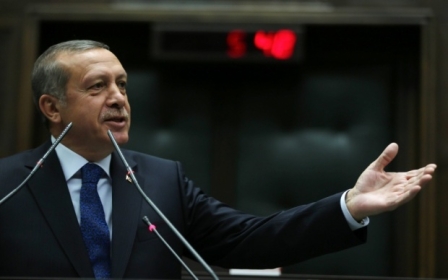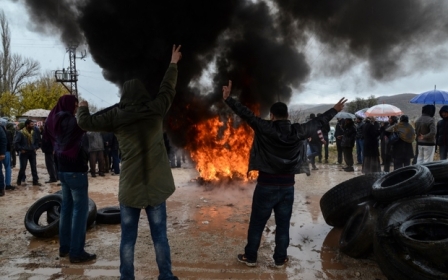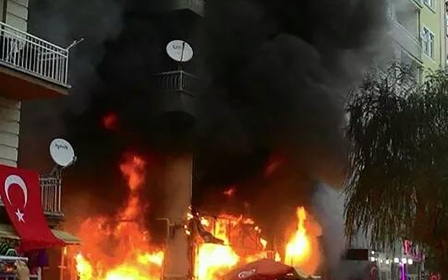Over 10,000 attend 'anti-terrorism' rally in Turkey's capital

More than 10,000 people took part in an "anti-terrorism" rally in Turkey's capital Ankara on Thursday, as the army continues a major offensive against Kurdish rebels, who have killed dozens of security force members since July.
The non-partisan rally was organised by a coalition of NGOs, trade unions and business groups, under the slogan "Yes to unity and solidarity, no to terror."
It came three days before another demonstration carrying the same theme in Istanbul, to be addressed by President Recep Tayyip Erdogan.
Erdogan's two-month-old offensive against the Kurdistan Workers' Party (PKK), with whom he had been in peace talks for three years, has divided Turkey.
His critics accuse him of using a suicide bombing in a southeastern Turkish town that was blamed on Islamic State (IS) as a pretext for reigniting a three-decade conflict with the PKK, to win nationalist votes in November elections.
Erdogan, who has tarred the PKK and IS with the same extremist brush, has signed Turkey up to airstrikes against IS in Syria. But he has devoted much more firepower to airstrikes on the PKK's bases along Turkey's border with Iraq and has also stepped up military operations in a handful of majority Kurdish cities.
The PKK has hit back hard, killing scores of soldiers and police in a string of bombings and shootings that have triggered reprisal attacks by Erdogan supporters on Kurdish parties and businesses in other regions.
'Enough is enough'
Metin Feyzioglu, head of the Bar Association, warned against the country sinking into anarchy.
"Turkey's strongest instruments in the fight against terrorism is not its warplanes or tanks but its legitimacy as a state governed by the rule of law," Feyzioglu told AFP.
A giant rippling red Turkish flag held aloft by the demonstrators carpeted the crowd, which covered a distance of over a kilometre.
"Damn the PKK," the crowd chanted.
"They were offered an opportunity for peace but they missed it," said Sebahattin Sevinc, 58, declaring: "Terrorists must be eradicated. Enough is enough."
Ahmet Ugur, a 59-year-old retired policeman, called for the reintroduction of the death penalty for killers of police or soldiers.
Unlike Sevinc, he held Erdogan's ruling Justice and Development Party (AKP) responsible for the resumption of the hostilities.
"This is a dirty game plotted by the ruling party," he said.
Fatma Kurthasan, the 81-year-old mother of an army colonel stationed in the mainly Kurdish city of Diyarbakir, said she was worried about her son's safety.
"I am here for peace," she said.
At least 120 police and soldiers have been killed by the PKK since July, according to state-run media.
The government, for its part, claims to have killed more than a thousand PKK fighters - figures that have been treated with scepticism in independent media.
The government also said up to 32 PKK militants were killed in a nine-day curfew of the mainly Kurdish city of Cizre, imposed during fighting with members of the PKK's youth wing.
But the pro-Kurdish Peoples' Democratic Party (HDP) claimed 23 civilians were killed during the operation.
The resurgence in violence comes ahead of parliamentary elections on 1 November, in which Erdogan's ruling Justice and Development Party (AKP) is seeking an outright majority after falling short of the mark in June polls.
Some 40,000 people have died since the PKK took up arms in 1984 seeking an independent state for Turkey's Kurdish minority. The rebels have since refocused their demands on securing greater autonomy and cultural rights.
Middle East Eye propose une couverture et une analyse indépendantes et incomparables du Moyen-Orient, de l’Afrique du Nord et d’autres régions du monde. Pour en savoir plus sur la reprise de ce contenu et les frais qui s’appliquent, veuillez remplir ce formulaire [en anglais]. Pour en savoir plus sur MEE, cliquez ici [en anglais].




